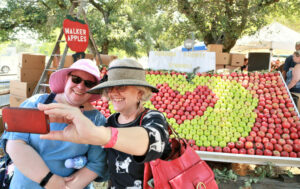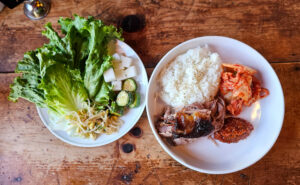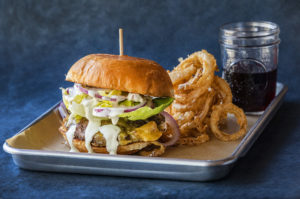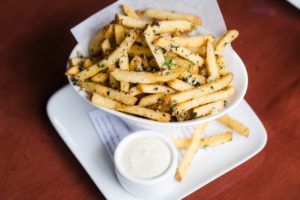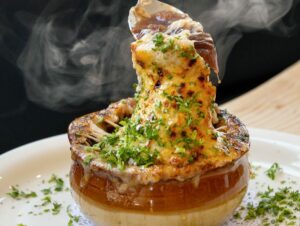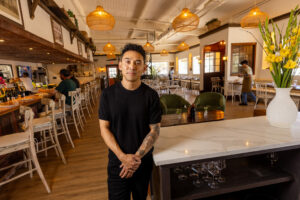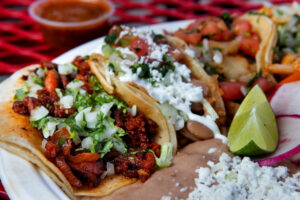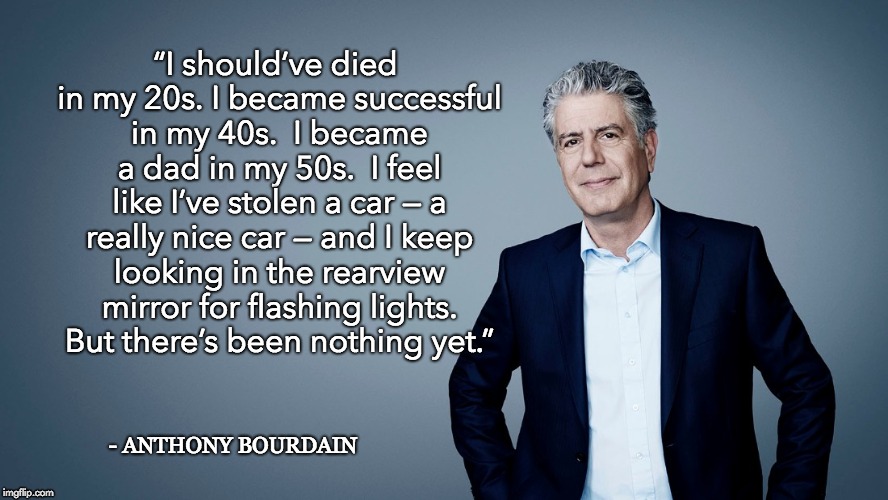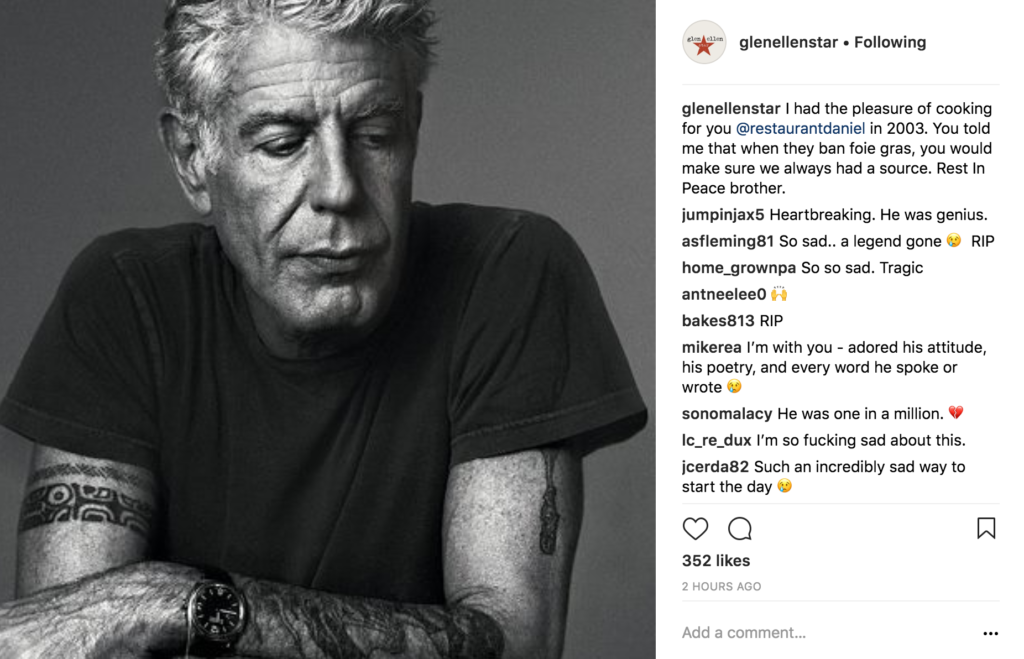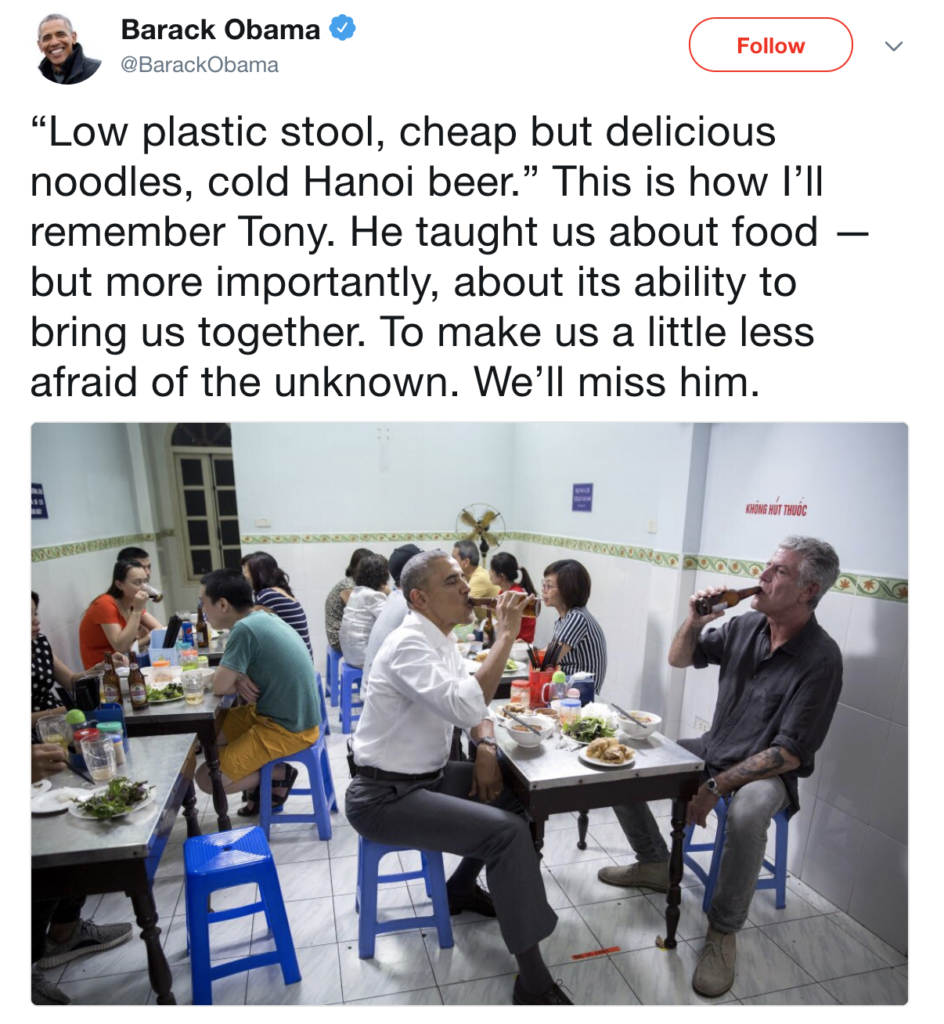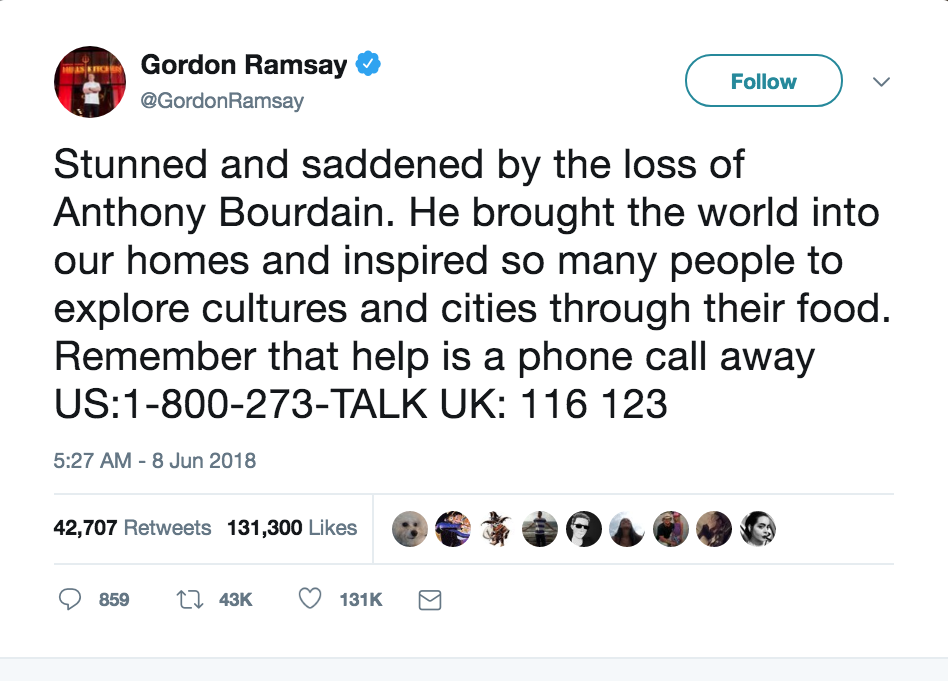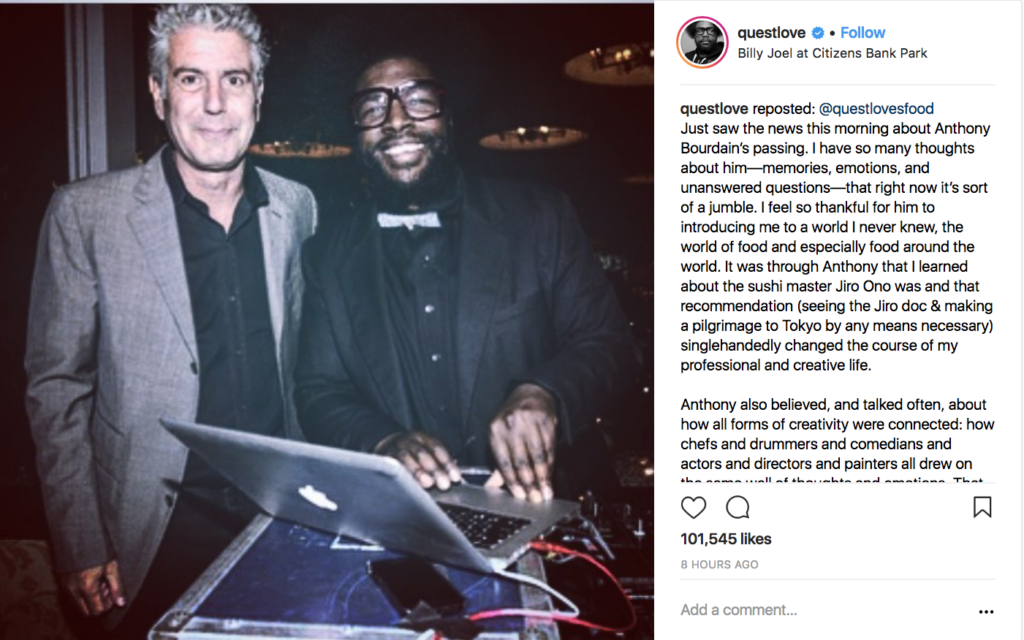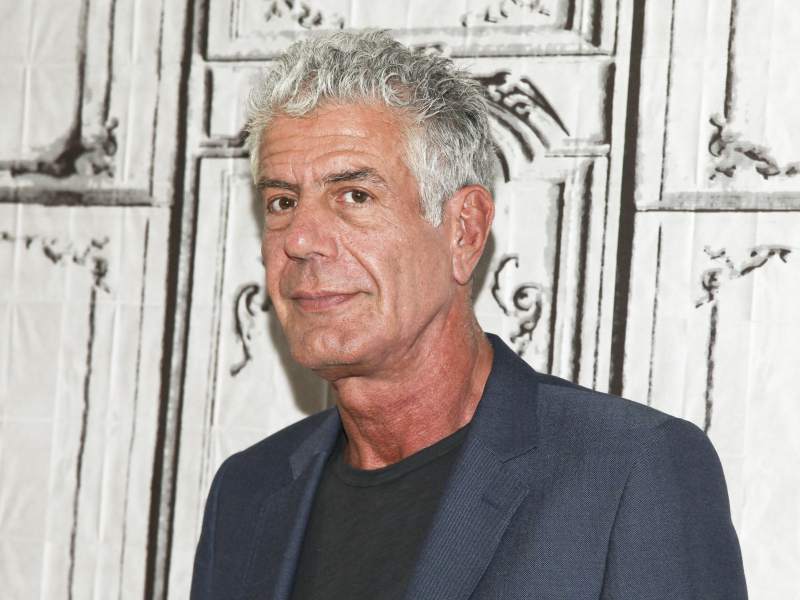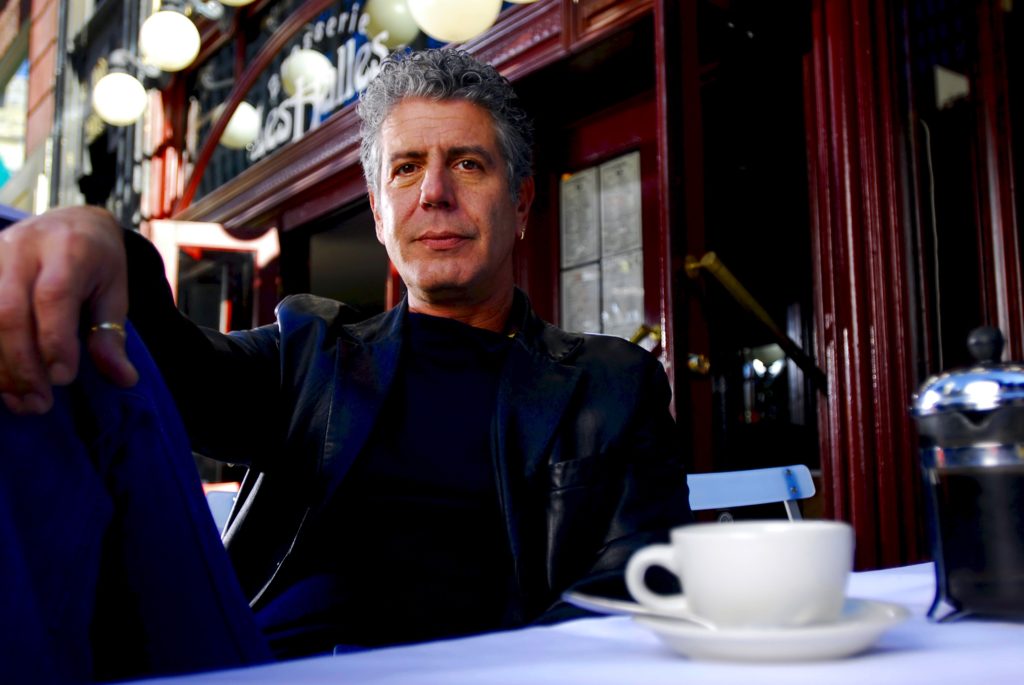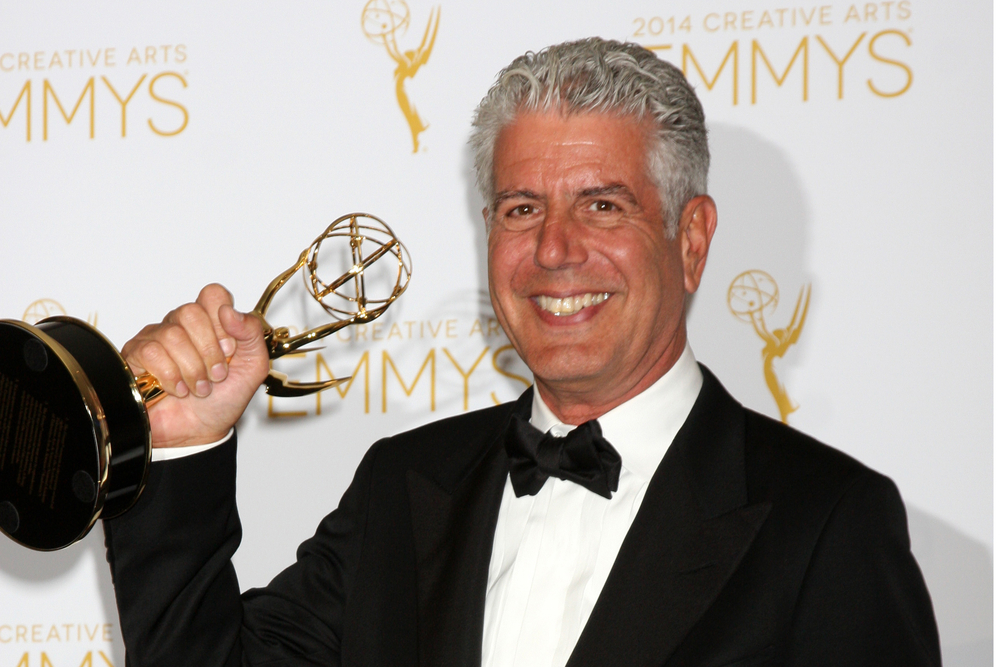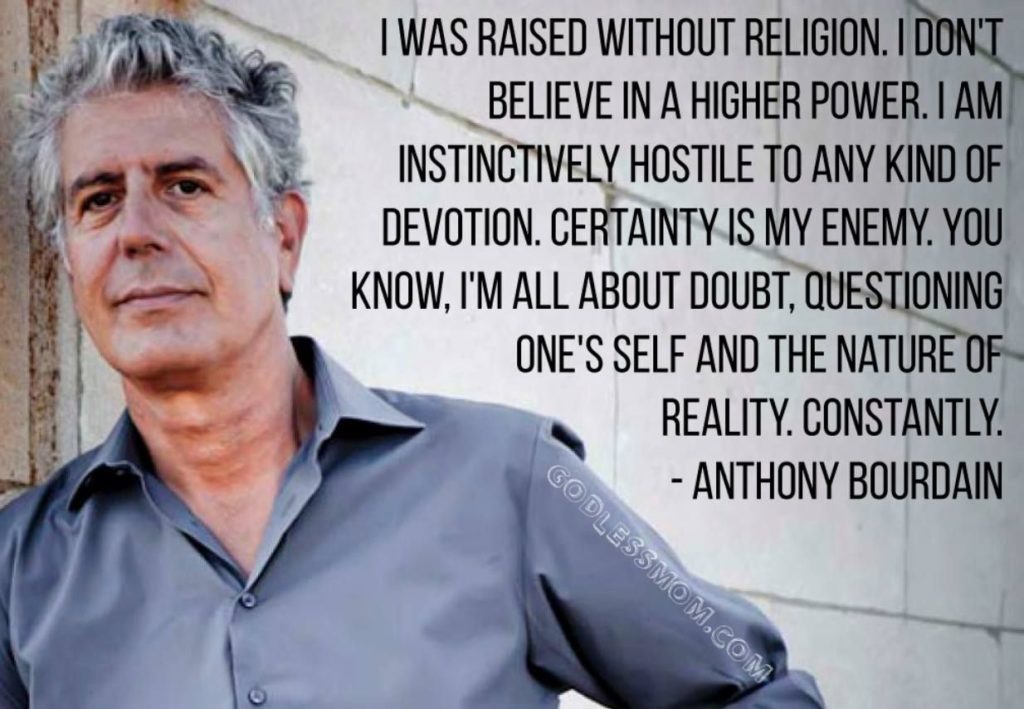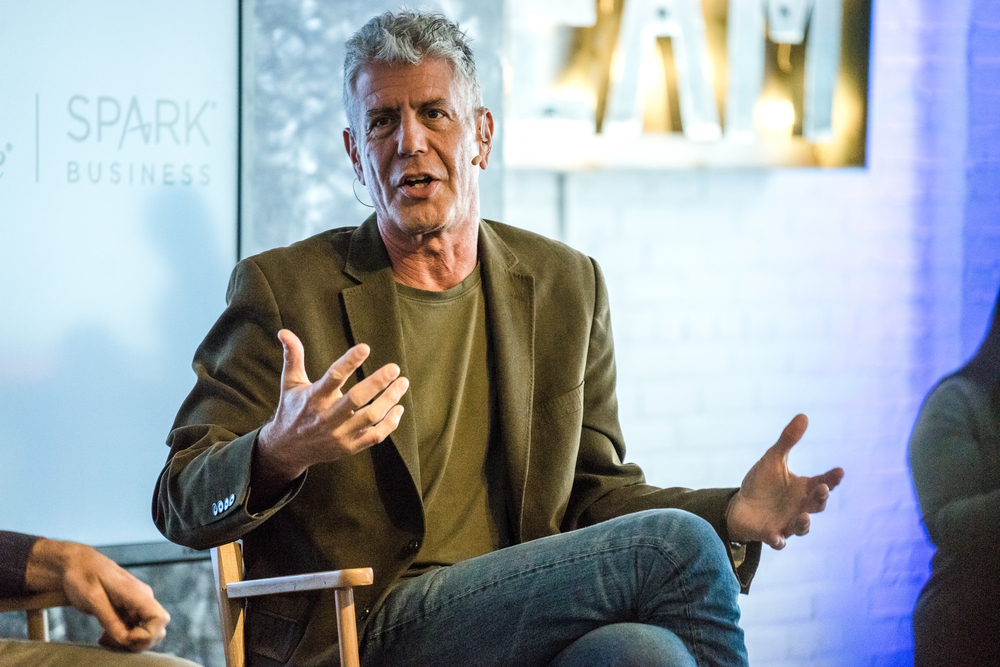My phone started blowing up at 8:30 this morning. Chefs aren’t known for their early morning tweets, but when Anthony Bourdain, the patron saint of offal and raconteur of all things edible is found dead in a French hotel room, news travels fast in Sonoma County.
Bourdain, 61, died after an apparent suicide. Best recognized for his CNN travelogue, “Parts Unknown” and groundbreaking kitchen tell-all, “Kitchen Confidential” the news of his passing reverberated through the culinary world, eliciting farewells from former President Barack Obama, close friend, Chef Eric Ripert, food writer Ruth Reichl and thousands of others in the food world who extolled his rogue approach to eating.
Ari Weisswasser of Glen Ellen Star, who once served Bourdain at Restaurant Daniel in New York, was one of the first in Sonoma County to post his thoughts on Instagram, saying “You told me that when they ban foie gras, you would make sure we always had a source. Rest In Peace brother.”

“I got a text from my brother in New York this morning about Bourdain, and I thought it was a prank,” said Weisswasser. He recounts the dinner where he served Bourdain–one filled with exotic ingredients that included wild doves, boar, hare, doves and the legendary ortolan. The tiny bird is eaten whole with a napkin placed on the diner’s head so God won’t see the shameful and decadent thing you’re doing. “They did the whole napkin thing,” said Weisswasser. Seriously.
“After dinner, he came to the kitchen and asked to bum a cigarette. Obviously, he chain-smoked and he had cigarettes with him, but I think it was just a way for him to break the ice and meet the cooks,” said Weisswasser, who was just 23 years old at the time. “We spent a good 30 minutes with him and I think he felt more comfortable with us than all the big names in the room.” With all the fuss about the foie gras ban in California at the time, Bourdain told the cooks that he would always find a supply for the delicacy for them, should they need it. It made an impression on the young cook.
“I think we can all relate to him in some form. On your way up in the kitchen, it’s a grind, it’s never-ending. His books described it perfectly, and I think anyone who has worked in a kitchen like that can relate to the pressure, the heat, the relief after dinner service,” he said. “No one does this for the money, and you need that immediate gratification that puts a smile on your face and brings you back the next day,” Weisswasser said.
Known for his bad boy persona and proud middle finger to anything he found sycophantic, Bourdain rose to the public consciousness in 1999 with a New Yorker essay about the horrors and wonders of a restaurant kitchen. Bourdain was the first back-of-house cook to tell the world what really happened behind the swinging doors with gut-churning descriptions of his time at New York’s Brasserie Les Halles and other restaurants, and trust us, it wasn’t pretty.
Following up with the seamy, un-put-downable Kitchen Confidential: Adventures in the Culinary Underbelly in 2000, Bourdain chastised diners who ordered fish on Monday (it’s been sitting around since Friday, he claimed) or bellied up to a steam table brunch buffet, like rubes (grossing us all out that it was mostly leftovers).
But his candor and punk-rock attitude also inspired a generation of chefs. “Reading Kitchen Confidential as a line cook was a game changer,” said Chef Heather Ames, a longtime chef at Skywalker Ranch who currently works at Cardinal Newman High School.
Bourdain was always the anti-celebrity chef, poking fun at anyone he thought lacked the real chops to be telling the rest of us how to cook. The Food Network’s Guy Fieri and Sandra Lee were favorite targets, though any misstep in the food world was fodder for his sharp wit. Emerging at a kinder, gentler moment when clean-cut faces like Emeril Lagasse, Alton Brown, Rachel Ray and Paula Deen ruled the Food Network, Bourdain ripped open the curtain to show us the bloody entrails behind the scenes.
For Jesse Mallgren, executive chef at the Michelin-starred Madrona Manor in Healdsburg, the news of Bourdain’s death hit especially hard. Bourdain has an 11-year-old daughter who he doted on, but now leaves behind. Mallgren himself lost his father at a similarly young age.
“You never know what demons other people have. As someone who lost his father to suicide, this one hits close to home. So sad…” said Mallgren on his Twitter feed on Friday. Mallgren was a fourth-grader when his father took his own life, causing him years of pain and confusion. “I still don’t understand it,” he said.
“I’m a chef, too, and I can see how someone would want to escape from everything, but being on the other side of it, and seeing personally, I can’t imagine doing that to your kid, to the people you love. It was pretty difficult as a kid to understand why your dad would do that,” he added.
Mallgren’s son, who is the same age he was when his father died, was top of mind Friday morning, “I feel so responsible for my kids I can’t imagine doing that to them. How miserable are you that you would do that?”
Mallgren acknowledged that the kitchen can be a mecca for people who aren’t always comfortable in traditional jobs. “People who don’t always like talking to people gravitate toward the kitchen. You can hide behind the pans and put your head down in the back of the house. Those kinds of likeminded people work with you. There’s a great camaraderie among cooks and they understand each other,” Mallgren said.
“It doesn’t matter how famous you are, we’re all basically the same. We all have our problems,” he added.
Others in Sonoma County recounted inspiration from his books and travelogues. “He was funny, irreverent, roguishly handsome, a great storyteller…I loved his series as it evolved into being more about the people and country with food as the connection,” said Condra Easley, co-owner of Sebastopol’s Patisserie Angelica
In 2010 when Bourdain came to Santa Rosa at the (then) Wells Fargo Center with Eric Ripert, I felt a mix of awe and the impish desire to poke the tobacco-stained, boozy bear, writing:
“I just can’t quit Anthony Bourdain. He’s a smug, foul-mouthed, boozy nihilist. He’s a poster boy for the schticky celebrity chefs he routinely skewers. His kitchen-cred is admittedly questionable, he’s not shy about where women belong, and the whole Quentin Tarantino channeling Hunter S. Thompson gets a little grating after 40 episodes or so.
Yet we, his brooding followers, can never get enough of King Tony’s bad boy antics and alcohol-fueled adventures. As the Patron Saint of Egoist Chefs, Dean of Maliciously Delicious Tweets and Railer Against Food D-Baggery, we eagerly dissect every episode of No Reservations and now, The Layover. We cheer as countless Kitchen Dimwits, Culinary Poseurs, food writers, and, well, most of the Food Network fall upon his sword. Huzzah!”
During public questions at the event, I challenged Bourdain to explain his feelings on the then-foie gras ban in California, a sticky wicket in the food world if there ever was one. What shocked me was his answer. Instead of throwing out some thoughtless quip studded with f-bombs, Bourdain seemed actually frightened about the whole subject. He said that after numerous run-ins with animal activists, some of whom had threatened his family, he felt that maybe it just wasn’t worth fighting about. I nearly fainted with surprise — but honestly, I think that behind the bravado, Bourdain had the same weaknesses and worries as the rest of us.
“The shock is like a punch to the gut. His work was like a rare jewel, Treasured and coveted. His simple style of questioning his hosts about their lives, their joys, their foods is something I share with the culinary classes. Could watch him interview a blank slate and it would interest me. His daughter is the one to be considered in this situation.” – Marie Ganister, instructor and academic coordinator, Windsor High School.
As someone who has worked closely with many folks in the restaurant industry, I know also first-hand the addictions and mental illness that are rife in creative professions. Bourdain made no secret about his mercurial ways and proclivity for hedonism.
“I’m still here — on my third life, or maybe fourth. Who knows? I should’ve died in my 20s. I became successful in my 40s. I became a dad in my 50s. I feel like I’ve stolen a car – a really nice car – and I keep looking in the rearview mirror for flashing lights. But there’s been nothing yet,” he told Biography in 2016.
It’s sad and horrible all around, and the man who cut through all the bullshit of celebrity chef-dom and gave us a window into the steamy life of a kitchen drone is gone. No doubt he’d think all the love letters, back-patting and smarmy goodbyes are ridiculous. But somehow deep down, I think he’d also appreciate how many of us he inspired while running from the lights.
Need help? Reach out. Please.
North Bay Suicide Prevention 24-hour hotline: 855-587-6373
NAMI Sonoma County warmline: 707-527-6655
Sonoma County Psychiatric Emergency Services: 707-576-8181
For information on Sonoma County support groups, call 707-527-6655 or go to namisonomacounty.org



